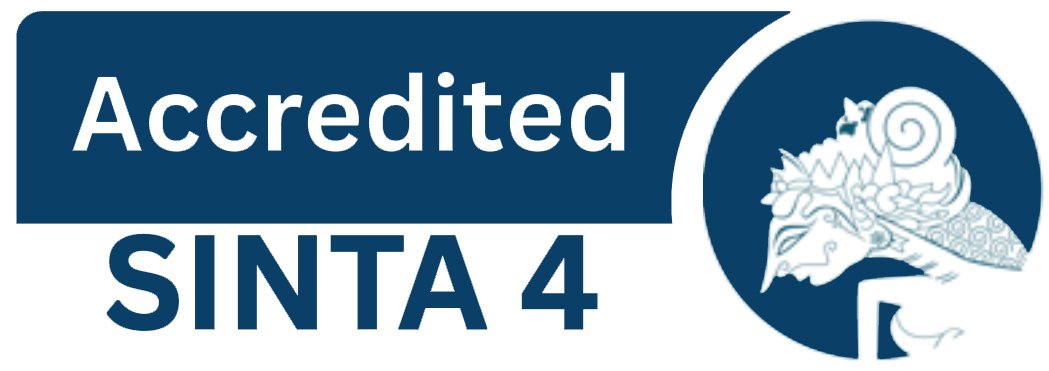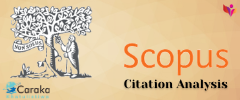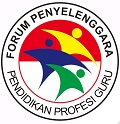A Systematic Review of Gamification-Based Learning Resources in Civic Education: Enhancing Student Engagement and Civic Competence
DOI:
https://doi.org/10.22460/jpp.v4i1.27520Keywords:
Gamification, Civic Education, Student Engagement, Civic Competence, Elementary SchoolAbstract
This study conducted a systematic review of gamification-based learning resources in elementary school Civics Education (PKn) to improve student engagement and civic competence. The Systematic Literature Review (SLR) method, with the PRISMA framework, was used to analyse 17 empirical studies published between 2019 and 2024. The results showed that gamification significantly improved student motivation (86% of studies), collaborative skills (72%), and civic understanding (68%) through elements such as badges, leaderboards, and interactive simulations. Key success factors include alignment with the curriculum, teacher training, and cultural relevance. In Indonesia, implementation challenges include limited digital infrastructure, as only 35% of rural schools have stable internet access, and teacher readiness is not yet optimal. This study proposes a contextual gamification approach that integrates local values such as cooperation and low-tech solutions to overcome these obstacles. Key findings indicate that gamification is not only a motivational tool but also an effective pedagogical strategy for developing holistic civic competence. Policy recommendations include ongoing teacher training, development of inclusive implementation guidelines, and longitudinal research to measure long-term impacts. In conclusion, gamification designed with local context and infrastructure limitations in mind can be a sustainable solution to revitalise civic learning in Indonesia.
References
Adzmi, N. A., Bidin, S., Selvaraj, B., & Saad, S. (2024). The Role of Gamification in Enhancing Engagement and Motivation in Language Learning. International Journal of Research and Innovation in Social Science, VIII(IX), 2402–2411. https://doi.org/10.47772/ijriss.2024.8090197
Al-Azawi, R., Al-Faliti, F., & Al-Blushi, M. (2016). Educational gamification vs. game-based learning: Comparative study. International Journal of Innovation, Management and Technology, 7(4), 132–136.
Al-Kaabi, R. (2024). Factors Affecting Citizen Engagement in the Kingdom of Bahrain Through Gamification. International Journal of Computing and Digital Systems, 15(1), 827–849. https://doi.org/10.12785/ijcds/160160
Allehaidan, A. F., & Zainon, W. M. N. W. (2024). Gamification and Student Engagement in Higher Education: The Moderating Role of Concentration. 13(79), 57–70. https://doi.org/10.34069/ai/2024.79.07.5
Boudadi, N. A., & Gutiérrez‐Colón, M. (2020). Effect of Gamification on Students’ Motivation and Learning Achievement in Second Language Acquisition Within Higher Education: A Literature Review 2011-2019. The Eurocall Review, 28(1), 40. https://doi.org/10.4995/eurocall.2020.12974
BPS. (2024). Statistik Pendidikan 2024. In Badan Pusat Statistik (4301002nd ed., Vol. 13, Issue 1). https://doi.org/https://www.bps.go.id
Cano, E. V, Quicios-García, M.-P., Cadavieco, J. F., & Rodríguez-Arce, J. (2023). Latent Factors on the Design and Adoption of Gamified Apps in Primary Education. Education and Information Technologies, 28(11), 15093–15123. https://doi.org/10.1007/s10639-023-11797-3
Caponetto, I., Earp, J., & Ott, M. (2014). Gamification and education: A literature review. In European Conference on Games Based Learning (Vol. 1, pp. 50–57). Academic Conferences International Limited.
Chou, Y. K. (2019). Actionable Gamification: Beyond Points, Badges, and Leaderboards. Octalysis Group.
Dahalan, F., Alias, N., & Shaharom, M. S. N. (2023). Gamification and Game Based Learning for Vocational Education and Training: A Systematic Literature Review. Education and Information Technologies, 29(2), 1279–1317. https://doi.org/10.1007/s10639-022-11548-w
Deterding, S., Dixon, D., Khaled, R., & Nacke, L. (2011). From game design elements to gamefulness: Defining "gamification". In Proceedings of the 15th International Academic MindTrek Conference (pp. 9–15). ACM.
Ghoulam, K., Bouikhalene, B., Babori, A., & Falih, N. (2024). Gamification in E-Learning: Bridging Educational Gaps in Developing Countries. International Journal of Advanced Corporate Learning (Ijac), 17(1), 85–95. https://doi.org/10.3991/ijac.v17i1.47631
Hamari, J., Koivisto, J., & Sarsa, H. (2014). Does gamification work? A literature review of empirical studies on gamification. In Proceedings of the 47th Hawaii International Conference on System Sciences (pp. 3025–3034). IEEE. Landers,
Kemendikbudristek. (2022). Panduan Pengembangan Projek Penguatan Profil Pelajar Pancasila. Badan Standar, Kurikulum, Dan Asesmen Pendidikan, 138.
Khosiyat, T. (2024). Gamification in English Learning Context: Assessing the Effects of Developing Language Competence. American Journal of Philological Sciences, 4(1), 58–63. https://doi.org/10.37547/ajps/volume04issue01-10
Kim, J.-H., & Castelli, D. M. (2021). Effects of Gamification on Behavioral Change in Education: A Meta-Analysis. International Journal of Environmental Research and Public Health, 18(7), 3550. https://doi.org/10.3390/ijerph18073550
Kristiawan, I., & Hariati, T. (2024). The Impact of Gamification in Digital Learning Media on Student Participation in Citizenship Subjects. Electronic Journal of Education Social Economics and Technology, 5(2), 348–353. https://doi.org/10.33122/ejeset.v5i2.435
Kusmawati, A. P., Fahrurrozi, F., & Supena, A. (2023). Increasing Concentration of Attention Deficit Hyperactivity Disorder (ADHD) Students Through Gamification Learning Media in Indonesian Inclusion Elementary School. International Journal of Special Education (Ijse), 38(1), 169–184. https://doi.org/10.52291/ijse.2023.38.15
Kutbay, E., & Bozbuğa, N. (2022). Health Education: Gamification, Health Literacy, and the New Era; Metaverse. https://doi.org/10.26650/b/et07.2022.012.13
Lester, D., Skulmoski, G. J., Fisher, D. P., Mehrotra, V., Lim, I., Lang, A., & Keogh, J. (2023). Drivers and Barriers to the Utilisation of Gamification and Game‐based Learning in Universities: A Systematic Review of Educators’ Perspectives. British Journal of Educational Technology, 54(6), 1748–1770. https://doi.org/10.1111/bjet.13311
Li, M., Ma, S., & Shi, Y. (2023). Examining the Effectiveness of Gamification as a Tool Promoting Teaching and Learning in Educational Settings: A Meta-Analysis. Frontiers in Psychology, 14. https://doi.org/10.3389/fpsyg.2023.1253549
Li, W., & Liu, L. (2023). An Examination of Influential Factors on Gamification in Higher Education: A Content Analysis. International Journal of Technology in Teaching and Learning. https://doi.org/10.37120/ijttl.2023.19.1.01
Mee, R. W. M., Pek, L. S., Von, W. Y., Ghani, K. A., Shahdan, T. S. T., Ismail, M. R., & Rao, Y. S. (2021). A Conceptual Model of Analogue Gamification to Enhance Learners’ Motivation and Attitude. International Journal of Language Education, 5(2), 40. https://doi.org/10.26858/ijole.v5i2.18229
Moreira, F. P., & Lima, D. A. (2023). Exploring the Impact of Gamification and the Flippity Tool in Teaching Brazilian Culture: Insights and Recommendations. https://doi.org/10.5753/wie.2023.234434
Nakiyemba, S. (2024). Impact of Gamification on Knowledge Acquisition. European Journal of Information and Knowledge Management, 3(1), 1–12. https://doi.org/10.47941/ejikm.1749
Pusat Standar dan Kebijakan Pendidikan. (2022). Laporan Kinerja Pusat Standar dan Kebijakan Pendidikan 2022. Kementerian Pendidikan, Kebudayaan, Riset Dan Teknologi Badan Standar, Kurikulum, Dan Asesmen Pendidikan Pusat Standar Dan Kebijakan Pendidikan.
R. N. (2014). Developing a theory of gamified learning: Linking serious games and gamification of learning. Simulation & Gaming, 45(6), 752–768.
Rahardja, F., Choi, L. K., Wijaya, R. C., & Sunarjo, R. A. (2024). Gamification in Digital Startups: Enhancing User Engagement and Business Growth. Startupreneur Business Digital (Sabda Journal), 4(1), 1–11. https://doi.org/10.33050/sabda.v4i1.639
Rincón-Flores, E. G., Mena, J., & López-Camacho, E. (2022). Gamification as a Teaching Method to Improve Performance and Motivation in Tertiary Education During COVID-19: A Research Study From Mexico. Education Sciences, 12(1), 49. https://doi.org/10.3390/educsci12010049
Rohmah, N. (2022). A Vocational School Cutting-Edge Learning Strategy: Examining Gamification Towards Student Engagement and Achievement. Jurnal Kependidikan Jurnal Hasil Penelitian Dan Kajian Kepustakaan Di Bidang Pendidikan Pengajaran Dan Pembelajaran, 8(3), 655. https://doi.org/10.33394/jk.v8i3.5779
Sailer, M., & Homner, L. (2019). The Gamification of Learning: A Meta-Analysis. Educational Psychology Review, 32(1), 77–112. https://doi.org/10.1007/s10648-019-09498-w
Santos, A. D. d., Aquino, F. R. d., Furtado, L. S., Silva, T. C. d., & Cruz, L. A. A. P. da. (2021). Gamification and Civic Engagement in Digital Government Applications: A Review. https://doi.org/10.5753/wcge.2021.15986
Seaborn, K., & Fels, D. I. (2015). Gamification in theory and action: A survey. International Journal of Human-Computer Studies, 74, 14–31.
Setyaedhi, H. S. (2023). Gamification of 2D and 3D Animation Subjects to Improve Learning Outcomes. Journal of Education Technology, 7(3), 532–542. https://doi.org/10.23887/jet.v7i3.67288
Spathopoulou, F., & Pitychoutis, K. M. (2024). Teachers’ Attitudes on Gamification: The Greek EFL Context. International Journal of Education and Practice, 12(2), 163–176. https://doi.org/10.18488/61.v12i2.3630
Su, C. H., & Cheng, C. H. (2015). A mobile gamification learning system for improving the learning motivation and achievements. Journal of Computer Assisted Learning, 31(3), 268–286.
Trinidad, M., Calderón, A., & Ruiz, M. (2021). GoRace: A Multi-Context and Narrative-Based Gamification Suite to Overcome Gamification Technological Challenges. Ieee Access, 9, 65882–65905. https://doi.org/10.1109/access.2021.3076291
Vanduhe, V. Z., Nat, M., & Hasan, H. F. (2020). Continuance Intentions to Use Gamification for Training in Higher Education: Integrating the Technology Acceptance Model (TAM), Social Motivation, and Task Technology Fit (TTF). Ieee Access, 8, 21473–21484. https://doi.org/10.1109/access.2020.2966179
Zhang, S., & Hasim, Z. (2023). Gamification in EFL/ESL Instruction: A Systematic Review of Empirical Research. Frontiers in Psychology, 13. https://doi.org/10.3389/fpsyg.2022.1030790
Λαμπρόπουλος, Γ., Keramopoulos, E., Diamantaras, K., & Evangelidis, G. (2022). Augmented Reality and Gamification in Education: A Systematic Literature Review of Research, Applications, and Empirical Studies. Applied Sciences, 12(13), 6809. https://doi.org/10.3390/app12136809
Загородній, С., Нагорняк, С., & Ставнича, Н. (2024). Гейміфікація На Уроках Громадянської Освіти: Від Теорії До Практичної Реалізації. Вісник Науки Та Освіти, 1(19). https://doi.org/10.52058/2786-6165-2024-1(19)-863-875
Downloads
Published
How to Cite
Issue
Section
License
Copyright (c) 2025 Hanifah Hanifah, I Nengah Suastika, Dewa Bagus Sanjaya

This work is licensed under a Creative Commons Attribution-ShareAlike 4.0 International License.
Authors who publish with the Journal Pendidikan Profesi (JPP) agree to the following terms:
- Authors retain copyright and grant the journal the right of first publication with the work simultaneously licensed under a Creative Commons Attribution License (CC BY-SA 4.0) that allows others to share the work with an acknowledgment of the work's authorship and initial publication in this journal.
- Authors are able to enter into separate, additional contractual arrangements for the non-exclusive distribution of the journal's published version of the work (e.g., post it to an institutional repository or publish it in a book), with an acknowledgment of its initial publication in this journal.
- Authors are permitted and encouraged to post their work online (e.g., in institutional repositories or on their website) prior to and during the submission process, as it can lead to productive exchanges, as well as earlier and greater citation of published work. (See The Effect of Open Access)
Similar Articles
- Oky Prayogi, Ryan Dwi Puspita, Implementation of Constructivism-Based Game-Based Learning Model in Science Learning for Grade IV , Jurnal Profesi Pendidikan: Vol. 4 No. 1 (2025): June
- Yanuar Rafindo, Puspa Dianti, Laili Linda Hartati, Application of ICT-Based Problem Based Learning Method as a Learning Innovation for Pancasila Education to Improve Learning Outcomes of Class VII D Students of SMPN 51 Palembang , Jurnal Profesi Pendidikan: Vol. 4 No. 1 (2025): June
- Maya Hilma Khoirunnisa, Diana Ermawati, Imada Khairunisa, Increasing Interest in Learning Mathematics Through the Technological Pedagogical and Content Knowledge (TPACK) Approach in Grade II Elementary School Students , Jurnal Profesi Pendidikan: Vol. 4 No. 1 (2025): June
- Mariani Surtiningsih, Penerapan Model Jigsaw Pada Materi Senyawa Karbon Turunan Alkana Untuk Meningkatkan Hasil Belajar Siswa SMA , Jurnal Profesi Pendidikan: Vol. 2 No. 2 (2023): December
- Ade Nira Susilawati, Jajang Bayu Kelana, Muhammad Ghiyats Ristiana, The Use of STEM (Science, Technology, Engineering, and Mathematics) Models to Improve Elementary School Science Concept Understanding , Jurnal Profesi Pendidikan: Vol. 4 No. 1 (2025): June
- Izzah Millati, Agustina Tyas Asri Hardini, Improving the Cooperation Attitude of Grade V Students Through the Application of Problem-Based Learning Model in Pancasila Education Subjects , Jurnal Profesi Pendidikan: Vol. 4 No. 1 (2025): June
- Medita Ayu Wulandari, Anwar Senen, Duhita Savira Wardani, Siti Ruqoyyah, Transforming Education Through Project-Based Learning (PjBL): Enhancing Students' Learning Outcomes and Critical Thinking , Jurnal Profesi Pendidikan: Vol. 4 No. 1 (2025): June
- Fattya Rosyada, Nurul Ikhsan Karimah, Analysis of Students' Misconceptions On The Characteristics of Flat Shapes Using Two-Tier Multiple-Choice Diagnostic Test in Grade V Elementary School , Jurnal Profesi Pendidikan: Vol. 4 No. 1 (2025): June
- Julia Julia, Umi Chotimah, Tyas Masito Mutiara, Enhancing Learning Motivation of Grade XI.9 Students Through Zep Quiz Media in Civics Education at SMA Negeri 3 Palembang , Jurnal Profesi Pendidikan: Vol. 4 No. 1 (2025): June
- Ricke Agsela Tikuasa, Titin Supiani, Lilis Jubaedah, Pengaruh Intensitas Menonton Video Tutorial Hairdo Melalui Media Sosial Tiktok Terhadap Hasil Belajar Penataan Rambut Siswa (Studi Kasus: Siswa Student Day SMA Plus PGRI Cibinong) , Jurnal Profesi Pendidikan: Vol. 2 No. 2 (2023): December
You may also start an advanced similarity search for this article.
















